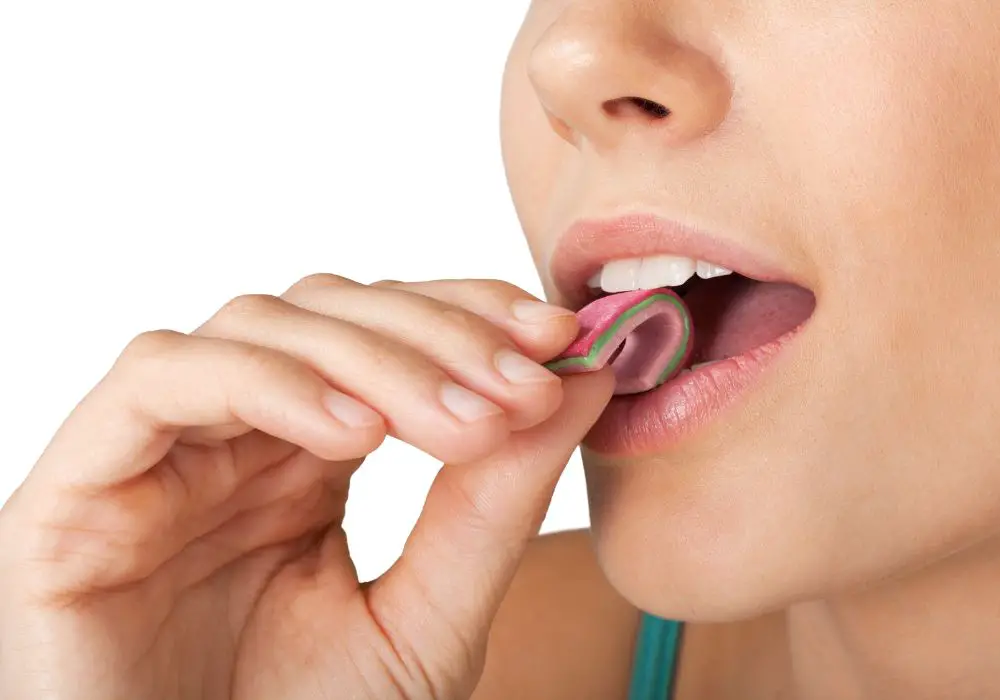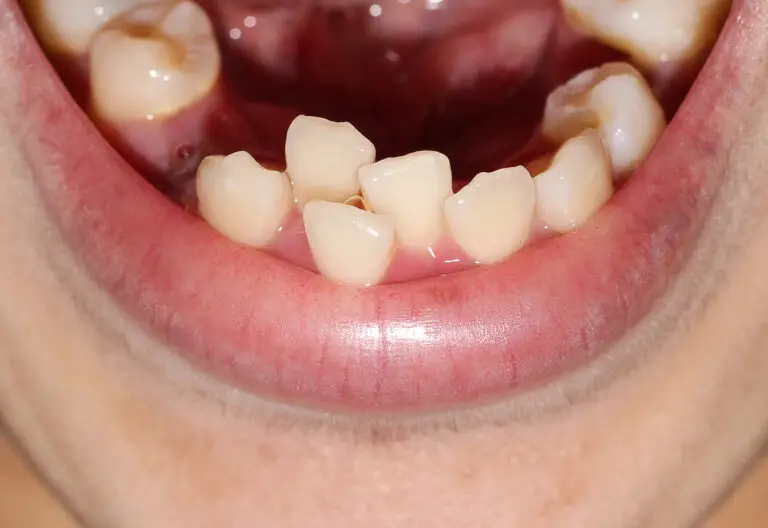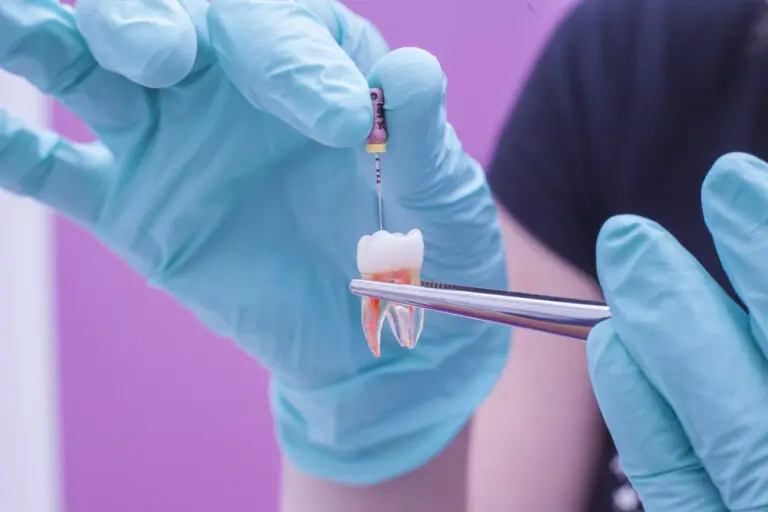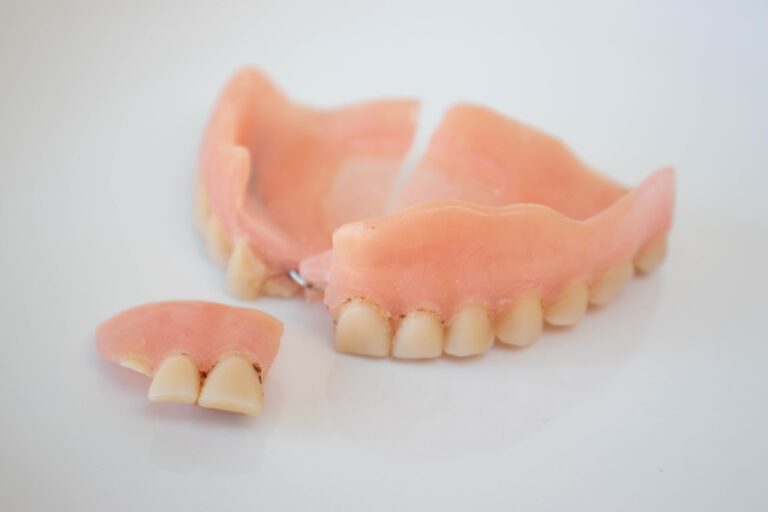Do you love chewing gum? Do you ever wonder if it’s bad for your teeth? The answer is not a simple yes or no. While chewing gum can have some benefits for your oral health, it can also have negative effects if you’re not careful.
One of the biggest concerns with chewing gum is the sugar content. Sugary gum can lead to tooth decay and cavities if not properly cleaned from your teeth. However, sugar-free gum can actually help prevent tooth decay by stimulating saliva production, which helps neutralize acid in your mouth.
Another potential issue with chewing gum is the impact on your jaw. Excessive chewing can lead to jaw pain and even temporomandibular joint disorder (TMJ). It’s important to be mindful of how often and how vigorously you chew gum to avoid these problems.
What is Gum?

If you’re like most people, you probably chew gum regularly or occasionally. But have you ever wondered what gum is made of and how it affects your teeth? In this section, we’ll explore the basics of gum, including its ingredients and types.
Ingredients of Gum
Gum is a type of candy that’s designed to be chewed but not swallowed. The ingredients vary depending on the brand and flavor, but most gum contains the following:
- Gum base: This is the main ingredient in gum and gives it its chewy texture. The base is usually made from synthetic rubber, which is a type of plastic.
- Sweeteners: Gum is sweetened with sugar or artificial sweeteners like aspartame, sorbitol, or xylitol.
- Flavorings: Gum comes in a variety of flavors, from mint to fruit to bubblegum. The flavorings are usually made from natural or artificial ingredients.
- Additives: Gum may contain additives like preservatives, softeners, or emulsifiers to improve its texture or shelf life.
Types of Gum
There are two main types of gum: chewing gum and bubble gum. Chewing gum is designed to be chewed for a long time, while bubble gum is meant to be blown into bubbles. Here are some other differences between the two types:
- Chewing gum is usually sugar-free, while bubble gum contains sugar.
- Chewing gum is available in a wider variety of flavors than bubble gum.
- Bubble gum is softer and easier to blow into bubbles than chewing gum.
- Chewing gum is often marketed as a way to freshen your breath or clean your teeth, while bubble gum is marketed as a fun treat for kids.
Now that you know what gum is made of and the different types of gum available, you can make an informed decision about whether to chew gum and which type to choose.
Effects of Gum on Teeth
When it comes to the effects of gum on teeth, there are both positive and negative aspects to consider. Let’s take a closer look at each.
Positive Effects
Chewing gum can actually have a positive impact on your teeth. Here are some of the benefits:
- Increased saliva production: Chewing gum stimulates saliva production, which can help neutralize acid in your mouth and wash away food particles and bacteria that can lead to tooth decay.
- Improved breath: Gum with a minty flavor can freshen your breath and mask bad odors.
- Reduced stress: Chewing gum can help relieve stress and anxiety, which can lead to teeth grinding and jaw clenching.
Negative Effects
While there are some benefits to chewing gum, there are also some negative effects to be aware of:
- Increased risk of tooth decay: Gum that contains sugar can increase your risk of tooth decay, especially if you chew it for an extended period of time. This is because the sugar can stick to your teeth and provide a food source for bacteria.
- Jaw problems: Constant gum chewing can put excessive force on your temporomandibular joints, muscles and teeth, which can lead to jaw pain, clicking or popping in one or both temporomandibular joints, and even tooth fracture.
- Gum disease: If you don’t brush and floss regularly, chewing gum can actually contribute to gum disease. This is because gum can trap food particles and bacteria in hard-to-reach areas of your mouth, leading to inflammation and infection.
In summary, chewing gum can have both positive and negative effects on your teeth. Choosing sugar-free gum and limiting your chewing time can help reduce the negative impact on your oral health. Remember to brush and floss regularly to maintain good oral hygiene.
Scientific Studies on Gum and Teeth Health

There have been several scientific studies conducted to determine the effects of chewing gum on dental health. Here are some of the findings:
- A study published in the Journal of Dental Research found that chewing sugar-free gum after meals can help prevent tooth decay. The act of chewing stimulates saliva production, which helps neutralize acid in the mouth and wash away food particles that can lead to decay.
- Another study published in the Journal of Clinical Periodontology found that chewing gum can help reduce the risk of gum disease. The researchers found that participants who chewed gum had less plaque and inflammation in their gums than those who did not.
- However, it’s important to note that not all types of gum are beneficial for dental health. Gum that contains sugar can actually contribute to tooth decay, as the sugar provides food for bacteria in the mouth. It’s important to choose sugar-free gum if you want to reap the benefits of chewing gum for dental health.
- Additionally, some types of gum can be too abrasive and may wear down tooth enamel over time. It’s important to choose a gum that is gentle on teeth and to avoid chewing gum excessively.
Overall, while there are some benefits to chewing gum for dental health, it’s important to choose the right type of gum and to use it in moderation. Chewing gum should not be seen as a substitute for good oral hygiene practices, such as brushing and flossing regularly.
Recommendations for Gum Consumption
When it comes to chewing gum, there are certain recommendations that you should follow to ensure that you are not causing harm to your teeth. Here are some guidelines for gum consumption:
For Adults
- Choose sugar-free gum: Sugar-free gum is a better option than regular gum because it doesn’t contain sugar, which can lead to tooth decay. Look for gum that contains xylitol, a natural sweetener that has been shown to reduce the risk of cavities.
- Chew gum for no more than 20 minutes: Chewing gum for too long can cause jaw pain and headaches. It’s recommended that you chew gum for no more than 20 minutes at a time.
- Don’t use gum as a substitute for brushing and flossing: Chewing gum can help freshen your breath and stimulate saliva production, but it’s not a substitute for brushing and flossing. Make sure to brush your teeth twice a day and floss once a day to maintain good oral health.
For Children
- Choose sugar-free gum: Just like adults, children should choose sugar-free gum to reduce the risk of cavities. Make sure to supervise your child when they are chewing gum to ensure that they are not swallowing it.
- Don’t give gum to children under the age of 4: Young children may not understand that they should not swallow gum, which can lead to choking. It’s recommended that you do not give gum to children under the age of 4.
- Limit gum consumption: Children should not chew gum for extended periods of time. It’s recommended that they chew gum for no more than 10-15 minutes at a time.
By following these recommendations, you can enjoy the benefits of chewing gum without putting your teeth at risk.
Alternatives to Chewing Gum

If you’re looking for a natural and healthy alternative to chewing gum, there are plenty of options to choose from. Here are a few alternatives to consider:
1. Mints
Mints are a great alternative to gum because they freshen your breath and satisfy the urge to chew. You can find a variety of mint flavors, including peppermint, spearmint, and wintergreen.
2. Licorice Root
Licorice root is a natural alternative to gum that can help treat a variety of stomach conditions. When peeled and dried, it can be chewed instead of gum.
3. Fennel Seeds
Fennel seeds have a sweet, licorice-like flavor and can be chewed to freshen your breath and aid digestion.
4. Cinnamon Sticks
Cinnamon sticks are a great alternative to gum because they freshen your breath and have a sweet, spicy flavor. You can chew on them for a few minutes to release their flavor and aroma.
5. Sunflower Seeds
Sunflower seeds are a healthy alternative to gum that can help reduce stress and anxiety. They also contain vitamins and minerals that are good for your overall health.
6. Dried Fruit
Dried fruit, such as apricots, figs, and dates, can be chewed instead of gum. They are a natural and healthy alternative that can satisfy your urge to chew.
7. Chewing Sticks
Chewing sticks are a traditional alternative to gum that have been used for centuries. They are made from the branches of certain trees and can help freshen your breath and clean your teeth.
Frequently Asked Questions
What are the best sugar-free gum options for healthier teeth?
When it comes to choosing the best sugar-free gum for your dental health, look for options that contain xylitol. Xylitol is a natural sweetener that has been shown to help prevent tooth decay by reducing the amount of harmful bacteria in your mouth.
Is sugarless gum detrimental to your dental health?
No, sugarless gum is not detrimental to your dental health. In fact, chewing sugarless gum can be beneficial for your teeth by stimulating saliva production, which helps to neutralize acids and wash away food particles that can lead to decay.
Does chewing mint gum cause dental problems?
No, chewing mint gum does not cause dental problems. However, some people may experience tooth sensitivity or discomfort if they chew gum with a strong mint flavor. If you experience any discomfort while chewing gum, try switching to a different flavor or brand.
Can chewing gum wear down your teeth?
Chewing gum in moderation is not likely to wear down your teeth. However, excessive chewing or chewing on hard gum can potentially cause damage to your teeth and jaw muscles. To avoid any potential problems, try to limit your gum chewing to no more than 20 minutes at a time.
Are there any benefits to chewing gum for your teeth?
Yes, there are several benefits to chewing gum for your teeth. Chewing gum can help to stimulate saliva production, which helps to neutralize acids and wash away food particles that can lead to decay. Additionally, some gums contain xylitol, which has been shown to help prevent tooth decay.
How often should you chew gum for optimal dental health?
To get the most benefits for your dental health, it’s recommended that you chew sugarless gum for at least 20 minutes after meals. However, it’s important to keep in mind that chewing gum should not replace regular brushing and flossing as part of your daily oral hygiene routine.






